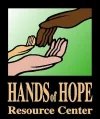Domestic violence is a pattern of abusive behavior used to gain control over another person. It includes threats; emotional, sexual, or economic abuse; intimidation; deprivation; social isolation; or repeated battering and assault.
Without culturally sensitive intervention, an immigrant victim of domestic violence may feel that they have no choice but to stay in an abusive relationship. Immigrant victims face many barriers to seeking and receiving assistance. The barriers may be cultural, economic, practical, or legal.
Immigrant victims:
· May be more likely to live in seclusion – far from family and friends, not speak English, work or drive a car.
· May have come from cultures that don’t talk about domestic violence and may believe that the U.S. legal system and its protections do not apply to them.
· May be ostracized by their family or community if they reveal the violence.
· May not be able to utilize available resources because the services are not offered in their language and interpreters are not available.
· May find that services in their community are not culturally appropriate.
· May fear the criminal justice system.
· May rely on male family members to interact with the public.
· May fear that their children will be taken from them.
· May fear that the person abusing them will be deported if they report the abuse, thereby eliminating their only source of income.
Immigrant victims may experience the following power and control tactics by the abuser:
CITIZENSHIP OR RESIDENCY PRIVILEGE: Failing to file papers to legalize immigration status or withdrawing papers that have been filed.
ECONOMIC ABUSE: Threatening to report the victim to ICE (Immigration and Customs Enforcement) if s/he is working “under the table” or without valid authorization; keeping the victim from obtaining job training or schooling (also a form of isolation); forcing the victim to work when they do not have a work permit; forcing the victim to sign papers (IRS forms, etc.) that they do not understand.
EMOTIONAL ABUSE: Demeaning and degrading comments about the victim seeking to damage the victim’s self-esteem; using the victim’s age, language skills, cultural norms, or disabilities to control them.
INTIMIDATION: Hiding or destroying the victim’s important papers (passport, identification card, Green Card, birth certificates, health insurance card, etc.); destroying the victim’s sentimental personal property.
ISOLATION: Keeping the victim from communicating with or seeing their family and friends; keeping the victim from learning to speak English.
SEXUAL ABUSE: Calling the victim a prostitute or “mail order bride;” forcing the victim to have sex with others for money; sexually assaulting the victim.
THREATS: Threatening to report the victim to ICE to get them deported; threatening to withdraw the petition to legalize the victim’s immigration status; threatening to harm the victim’s family or to stop financial support.
USING CHILDREN: Threatening to take the victim’s children away from the United States, file for custody, report children to ICE, or hurt the children
For more information on helping someone experiencing domestic violence, contact an advocate at Hands of Hope Resource Center by calling 320-632-1657 (Morrison County) or 320-732-2319 (Todd County). The community is invited to visit the Domestic Violence Awareness Month display located at the main entrance of the Government Center in Little Falls throughout October. Hablamos español.
